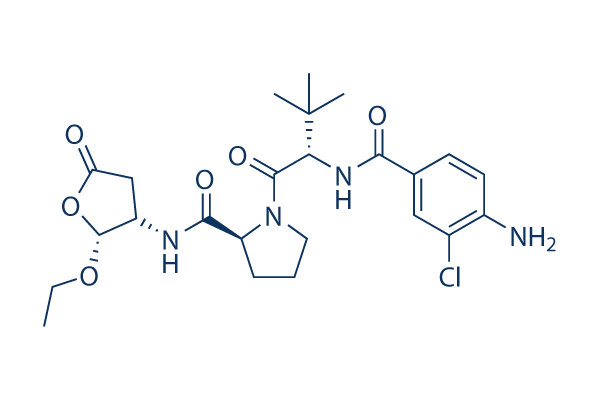Cancer cells which respond to GBP in accordance with this pattern are non invasive, non aggressive cells with low levels of ErbB2. They’re typi fied by MCF 7 breast cancer cells and by p53 defective Ramos lymphoma cells. We now report that in breast cancer cells exactly where ErbB2 is overexpressed, GBP was unable to impact cell proliferation, but, though unable to quench redundant mitogenic signalling and inhibit cell proliferation, by downregulating PI3K activity and suppressing akt gene expression, GBP had sturdy ther apeutic efficacy that resulted in enormous apoptotic death. The relationship between mitogenic input and akt gene expression and among akt mRNA levels and induction of apoptosis by GBP as a consequence of downregulation of PI3K activity was validated each in ductal cells and in non inva sive MCF 7 cells exactly where mitogenic signalling was experimen tally raised.
In the MCF10A ductal cells, as soon as phosphorylated ERK and akt mRNA were boosted by upregulated mitogenic input, and their typical like behaviour changed to mimic that of the BT474 and SKBR3 cancer cells, loss of akt mRNA resulted in an intensity of apoptotic death comparable a replacement to that with the BT474 and SKBR3 cells where ErbB2 is overexpressed. In a related fashion, the MCF 7CTx cells exactly where ERK and akt mRNA had been experimentally upregulated, soon after overriding the development inhibitory impact of GBP, succumbed to total death. This result poses the question of regardless of whether, where a shift into malignancy enhances aggressiveness, the use of GBP may conceivably be a potentially profitable option for the use of implies directed at quenching constitutively active sources of mitogenic signalling.
We’ve got previously reported that luminal breast cells from cosmetic reduction mammoplasties in short term culture arrested by GBP suffer no harm and resume development. Addi tionally, mTOR signaling pathway we’ve reported that GBP has no dangerous impact on expanding T cells from wholesome subjects nor, importantly, on progenitor cells from bone marrow donors. Within this study, we come across that the  na ve MCF10A mammary ductal cells suffered little damage when exposed to GBP indicating that loss of survival signalling is just not dangerous in the absence of abnormal mitogenic stress, thus offering a single conceivable explanation for the absence of harmful impact by GBP within the ex vivo regular cells previously studied. It’s also of interest that when mitogenic input was raised within the ductal cells, the cells underwent apoptotic death when challenged by GBP. This permits us to speculate that exactly where a rise of mitogenic signalling is usually a prime occurrence amongst events that result in oncogenesis, in all probability nascent cancer cells could be eliminated in the healthier organism by the T cell produced endogenous GBP inside a surveillance part.
na ve MCF10A mammary ductal cells suffered little damage when exposed to GBP indicating that loss of survival signalling is just not dangerous in the absence of abnormal mitogenic stress, thus offering a single conceivable explanation for the absence of harmful impact by GBP within the ex vivo regular cells previously studied. It’s also of interest that when mitogenic input was raised within the ductal cells, the cells underwent apoptotic death when challenged by GBP. This permits us to speculate that exactly where a rise of mitogenic signalling is usually a prime occurrence amongst events that result in oncogenesis, in all probability nascent cancer cells could be eliminated in the healthier organism by the T cell produced endogenous GBP inside a surveillance part.
Ras Signal
RAS is a fairly simple protocol composed of just a few messages.
